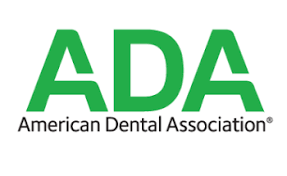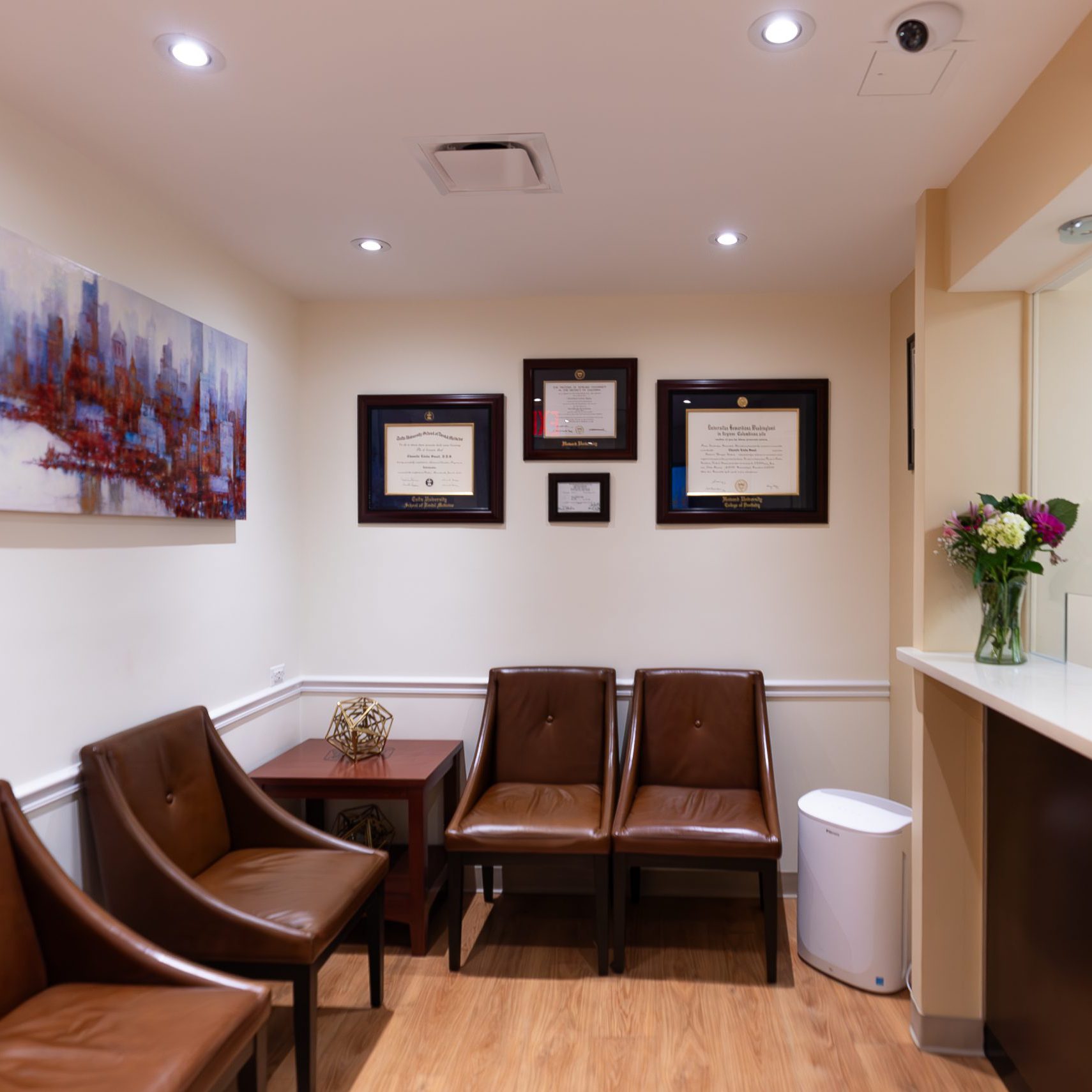WELCOME TO MIDTOWN ENDODONTICS in NYC
Thank you for your interest in Midtown Endodontics. Our expert team, led by respected endodontist in NYC, Dr. Chanelle Small along our experienced clinical staff provide the highest standard of professional care in a friendly, comfortable environment.
This website is designed with patients and referring doctors in mind. Patients can complete the online patient registration prior to the appointment. Our website offers referring doctors the ability to view and update patient information online at their own convenience. Please take a moment to discover more about our services, dental team, and how we put your care first. We are grateful that you have entrusted your confidence in our office and staff. Thank you for giving us the opportunity to treat you as a patient.
Meet Our Trusted New York City Endodontist, Dr. Chanelle Small
Chanelle Small, DDS received her Certificate of Endodontics from the Tufts University School of Dental Medicine in Boston, MA and both her Doctor of Dental Surgery and her undergraduate degree from Howard University in Washington, D.C.
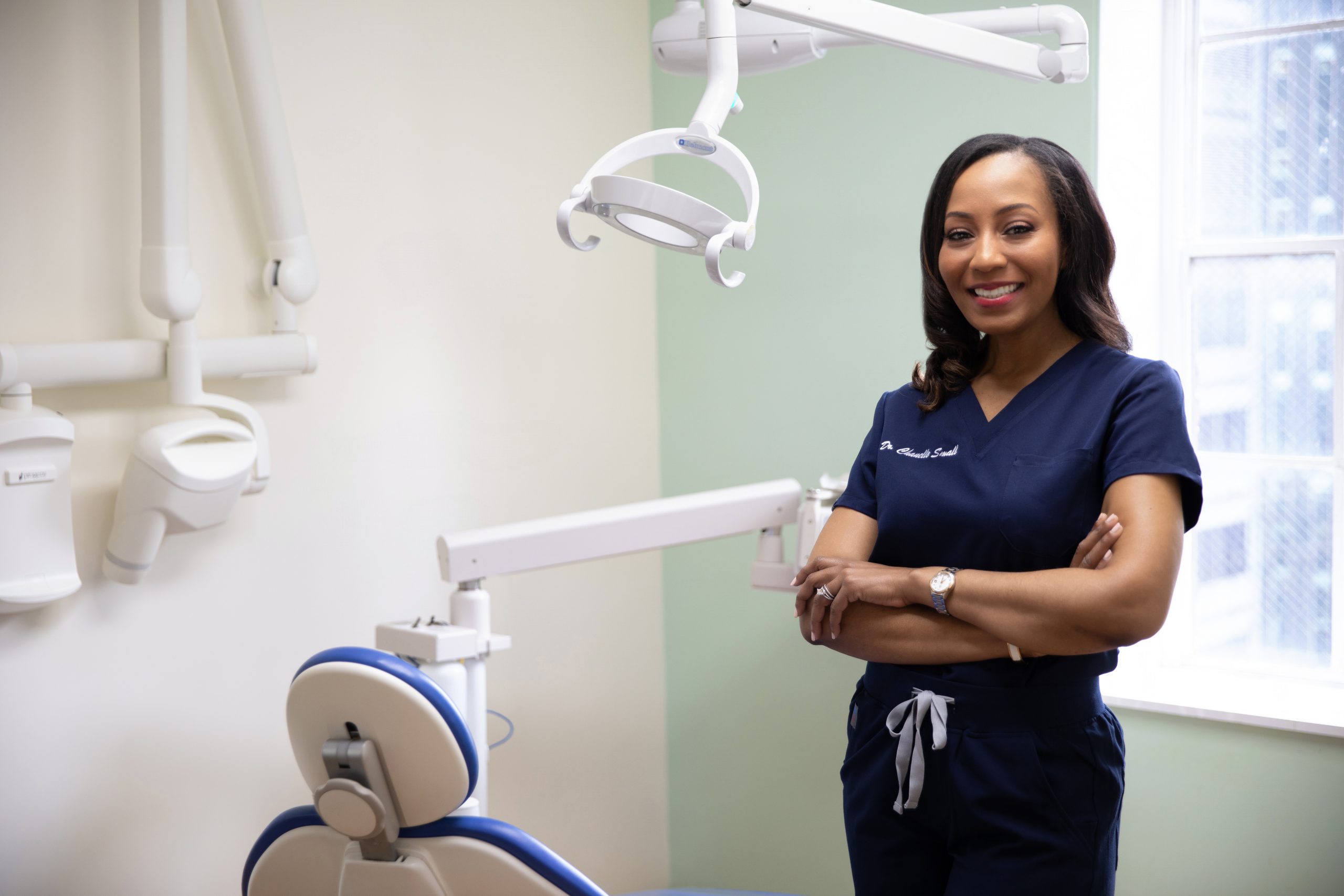
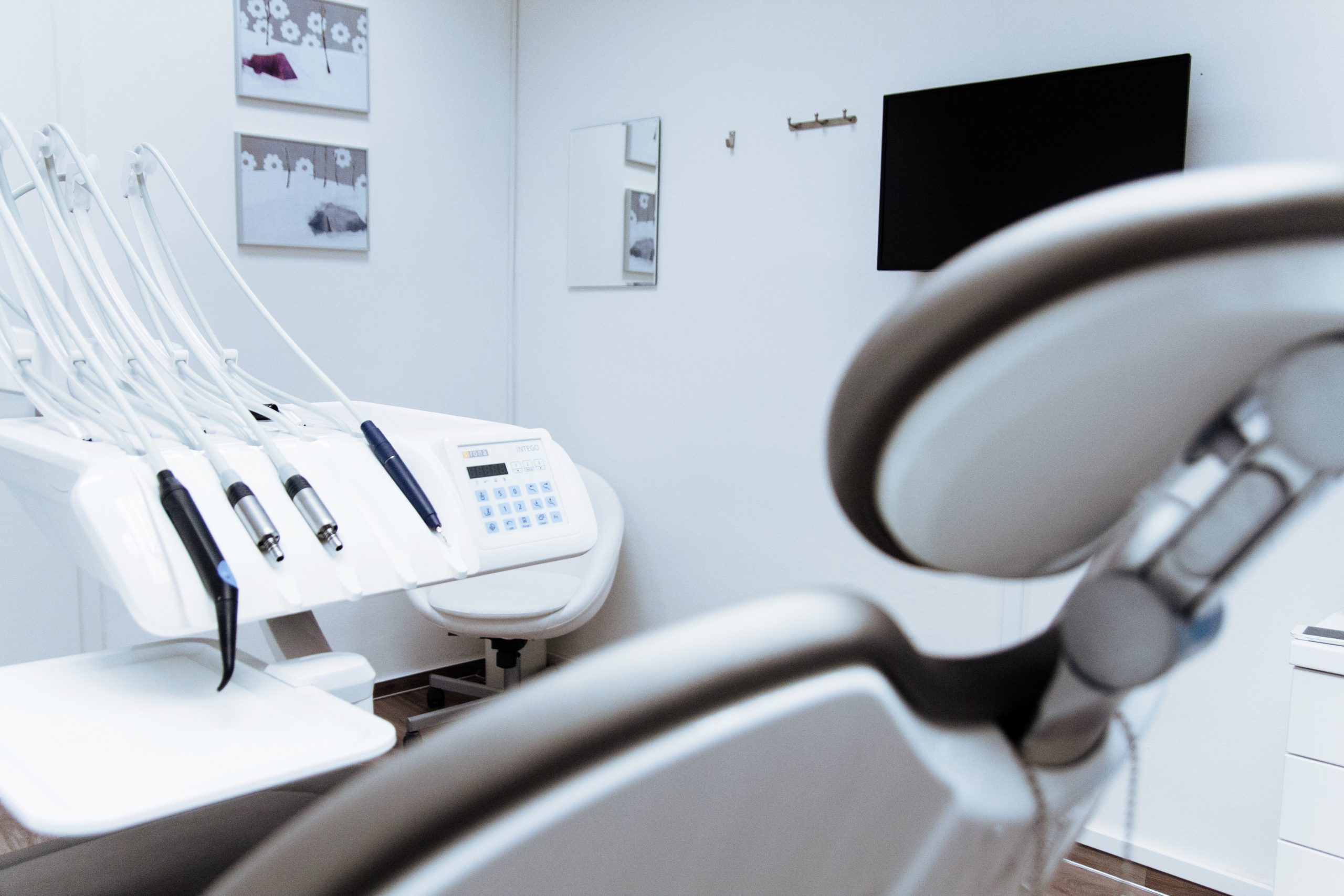
What Sets Us Apart
Dr. Small recognized by Dental Tribune Magazine
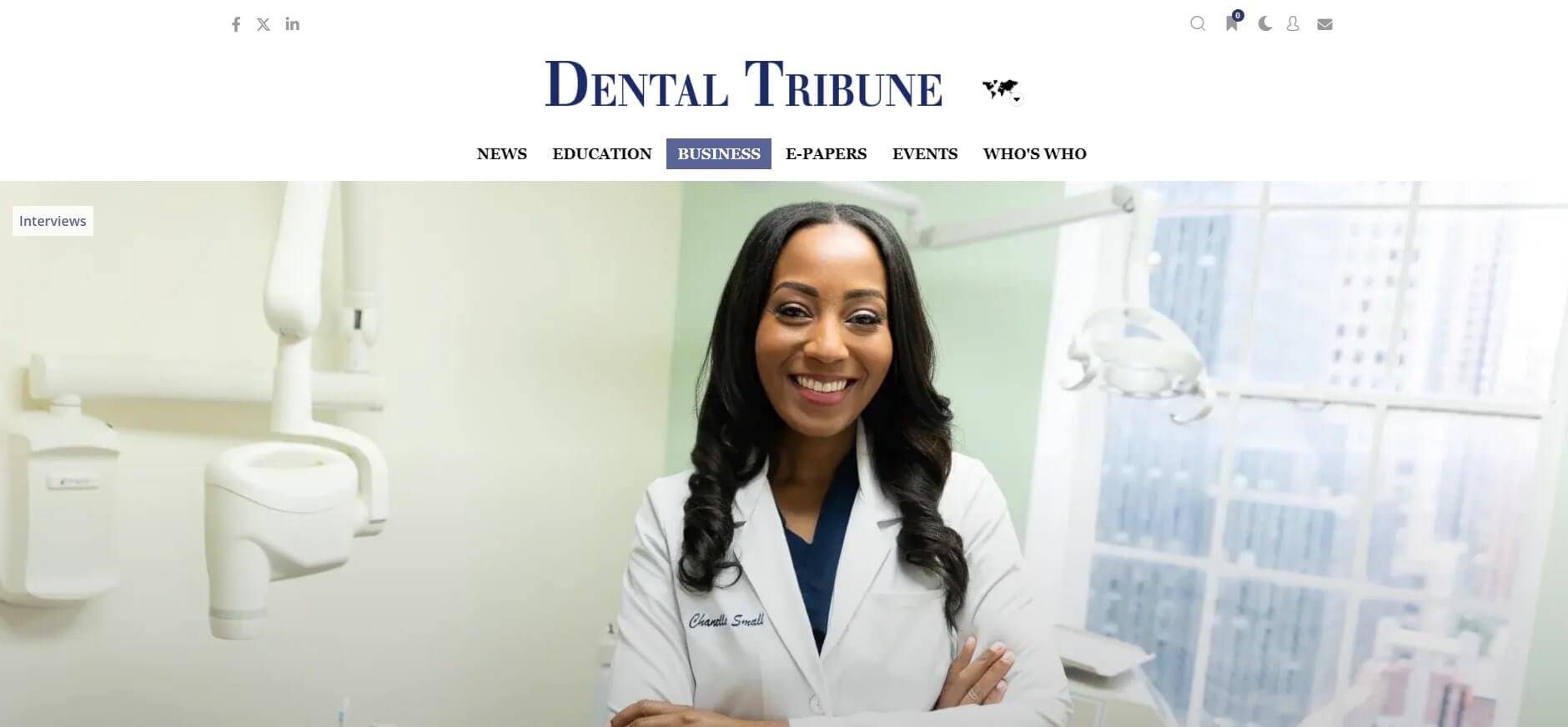
Frequently asked questions About Our Endodontic Services in NYC
We will take every measure to ensure that anesthesia to gently numb a concentrated area of your mouth. For most patients, the feeling of numbness usually subsides after a few hours.
Yes, for most root canal treatments, we recommend that patients return to our dental office in NYC one year after the procedure was finished. Our office will send a reminder notice to you when you are due for your follow-up appointment. In the meantime, it is of the utmost importance that you see your general dentist to have the tooth permanently restored 2-3 weeks after treatment is completed in our office
No. While radiographs (x-ray images) will be necessary during your endodontic treatment, we use an advanced non-film computerized system, called digital radiography, that produces radiation levels up to 90 percent lower than those of already low dose conventional dental x-ray machinery. These digital images can be optimized, archived, printed, and sent to your restorative dentist via secure e-mail or portal that is HIPAA compliance.
Endodontic treatment, or a root canal, removes infected or damaged pulp from inside the tooth. After cleaning and disinfecting the area, the space is filled and sealed to prevent further infection. This process keeps the tooth’s natural structure intact, allowing you to retain your original tooth rather than replacing it with an artificial option.
Endodontics is a specialized branch of dentistry focused on the inner tissues of the teeth, particularly the pulp and nerves. It deals with diagnosing and treating conditions that affect the tooth’s pulp, root canals, and surrounding tissues. Endodontists are dentists who have completed additional training in these specialized procedures.
Endodontic treatment that we offer in our NYC clinic can relieve severe tooth pain caused by infection or inflammation in the pulp. By treating the issue within the tooth, endodontic treatment eliminates pain, restores function, and saves the tooth, preventing the need for extraction and other dental work like implants or bridges.
During endodontic treatment, your endodontist in NYC will numb the area around your tooth to ensure comfort. Using advanced tools, they’ll access the infected pulp, clean it out, and fill the area with a special material to protect it. Afterward, you may need a crown to restore the tooth’s strength. The procedure is usually completed in one or two visits, and any discomfort is typically mild and temporary.
New technology in endodontics includes digital imaging for precise diagnostics, rotary instruments for faster and more efficient treatment, and 3D cone-beam CT scans for detailed views of tooth structures. Additionally, dental microscopes allow endodontists to see intricate areas inside the tooth, enhancing treatment precision.
Infection control is a top priority in our endodontic practice in NYC. Our clinic follows strict sterilization protocols, including the use of disposable tools and barriers. Instruments are sterilized between patients using autoclaves, and endodontists use rubber dams during treatment to isolate the tooth and minimize the spread of bacteria. These practices help ensure a safe, sterile environment for our patients.
Midtown Endodontics is a trusted provider of endodontic care in New York, NY, offering advanced treatment options with a focus on patient comfort and long-term results. Led by Dr. Chanelle Small, our Midtown practice uses the latest technology to perform root canals, endodontic retreatments, and microsurgery with precision. Patients choose us for our compassionate approach, convenient location, and commitment to preserving natural teeth.
What Our Patients Are Saying
Already Have an Appointment? Register here!
If you have not made an appointment yet, please call our office in New York City at 212-721-2266.

